Theatrical Nowruz 2020: performance online and Dostoevsky's letters in messenger
From June 8 to 17, Kazan hosts the 6th international festival forum Nowruz, and its speakers and teachers are already discussing what the theatre will be like after the pandemic
The sixth theatre and educational forum Nowruz promises to be truly unique — speakers and teachers from Moscow and St. Petersburg, Colombia and Germany, Poland and Perm, it will gather on an online platform in the format of video conferencing on Zoom platform, organized by the Galiaskar Kamal Tatar State Academic Theatre . Four hundred people have already registered for the event — Realnoe Vremya tells what they are going to do.
“We will not only talk about distance education but also show it in practice”
Classes this year will be held in nine areas, they will cover a variety of topics, including theatre pedagogy, directing and acting courses, management and PR technologies in the field of theatre arts, and much more.
“The format of Nowruz — an educational forum — was designated initially," says Ilfir Yakupov, the director of the Galiaskar Kamal Theatre and executive director of the forum. “It is held every two years, as well as the festival, both of these eponymous events are interspersed with each other. When schools and universities began to switch to distance learning, we thought — our event is also educational in nature, so it can be online, too? We decided not to cancel the forum but took a short pause initially
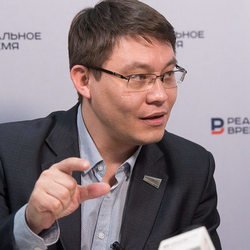
The director of the forum noted that quite a lot of participants are expected this year. Now they do not need to come to Kazan and pay for travel and accommodation. Everyone will study from home. As of today, about 400 people have been registered from various places in Russia, near and far abroad — Uzbekistan, Kazakhstan, Nizhny Tagil, Veliky Novgorod. For comparison, in previous years, the forum was attended by an average of 300 people. If we take into account that registration finishes on June 5, the number will increase.
“The pandemic has shown a dead end just a step away from it”
In parallel, during the last three days of the forum, an online scientific conference on new dimensions in theatre education 'Challenges of the mind' will be held. Here, theatre figures from different parts of the world will discuss the challenges that the new reality poses to modern theatre, try to predict the future of creative education in the era of digitalization and determine how digital thinking will affect the process of an actor's existence within the framework of a performance.
The discussion will be held in two languages (with simultaneous translation if necessary) — Russian and English. The conference will be curated by Professor Yury Alshits from Germany. It can be called a headliner of the festival. Author of books on theatre pedagogy 45 Questions For The Role, Training Forever!, The Vertical Of The Role, one of the most popular modern theatre teachers, who has educated thousands of students around the world, on the forum, he will also lead an online school-laboratory for theatre teachers and actors of drama theatre.
Interestingly, the project will go beyond the time frame of the forum and will last for two months, until August 1. The result of the work will be independently prepared performances — the best works of students of the school-laboratory, which will be presented in the framework of the international theatre festival Nowruz in June 2021. Yury Alshits shared his vision with Realnoe Vremya what the theatre of the future will look like and how the challenges of the pandemic will affect it:
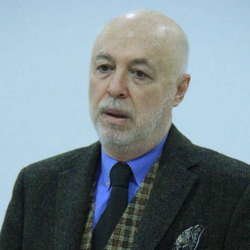
The theatre will not be the same, nor will life itself be the same. But the human must change, first of all in thinking. We need to change its level because we have reached an impasse in which neither theatre nor other forms of human activity will work. The pandemic highlighted the peculiarity of a path that has no continuation, just a step away from a dead end. In my laboratory, together with teachers from the country's largest universities, I will strive to change our thinking during these two months. This is what determines what the theatre of the future will be like," Alshits believes.
“In the theatre, we will laugh and cry together again”
The highlight of the forum is the theoretical and practical master class on 'A Novel in Nine Letters' by Fyodor Dostoevsky, which will be directed by Colombian Director Alejandro Gonzalez Puche. He was already a guest of the Nowruz festival, and in 2018 he presented the play 'The Chernobyl Idiot', based on the novel by Russian classic and the work of Svetlana Aleksievich. He himself sees similarities between the Chernobyl tragedy, which will turn 35 years next year, and the coronavirus pandemic: “Human has stopped listening to nature, the animal world, and the world around him. Nature punishes us for our pride and stupidity, for the idea that we can exploit natural resources without end. Human must adjust his relationship with nature.”
The director is famous for his extraordinary reading of the classics, and he strives to “modernize it” as much as possible, as it was in 'The Idiot'. This time he was true to himself:
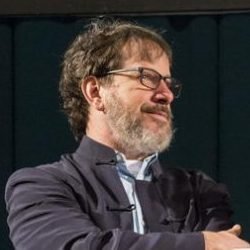
Puche noted that in Colombia, all theatres live on revenues from the box office. All his colleagues are going through a disaster, they have nothing to feed their family with. He is sure that theatres will be able to return to normal life among the last among other areas of culture and economy. He can't say exactly what the theatre will be like after the pandemic, but it should still be a place where people will gather “to laugh and cry together”. Now we should use the time to read more and to create good novels, “to rise spiritually”.
Choreographers are not afraid of remote participation
Moscow teacher, choreographer and director Alexander Andriyashkin will participate in the educational forum Nowruz for the first time, although he already came to the theatre festival of the same name last year. In 2019, he was a guest choreographer who worked on the performance of director Roman Feodori's 'Moliere', which closed the festival:
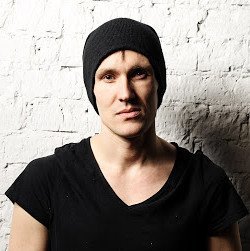
Pros — everyone can conduct classes in a comfortable environment. This format is also available to more students. And among the nuances, I can indicate that in this format there is no instant energy return from students. Besides, sometimes it is more difficult for a participant to hold their attention. But in our case, this is exactly what we are working with. We are all united by the fact that such classes are quite new for many of us — this gives us excitement as well. They open up opportunities that the usual offline lessons don't have. For example, we can independently examine our behaviour in front of cameras or work out a close-up, that is, only the face or only the hands…
Alexander Andriyashkin believes that his task is a clear system of knowledge and experience that must be conveyed to the participant. The educational module is clearly structured, and it involves not so much criticism and evaluation of the participant as suggestions to pay attention to aspects and make informed choices and decisions. He noted that he would be happy to have any number of students and does not set an upper bar for their number.
“The theatre and the sanitary regime are incompatible”
Agnieszka Lubomira Piotrowska, the translator of Russian literature, curator of theatre projects, representative of Ivan Vyrypaev and Nikolay Kolyada in Poland, will tell the forum participants about modern Polish theatre. The Polish theatre gained special popularity in Russia after the festival in Moscow as part of the Golden Mask in 2011. Despite its “Westernism”, the Polish theatre is close to Russian because it combines the old tradition of psychological theatre with the avant-garde of Tadeusz Kantor and Jerzy Grotowski. The conglomerate of Western and Eastern became familiar and comprehensible to the Russian people in the theatre.
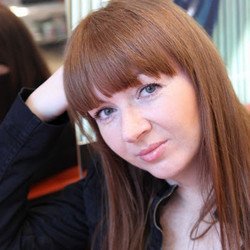
As for the future of theatres, on May 18, rehearsals resumed in theatres in Poland, and a number of workshops started working. However, it is not known even approximately when the theatres themselves will be opened. Agnieszka Piotrowska is sure that the temples of Melpomene will open only when all the requirements of the quarantine are lifted, that is, there will be no need for protection and social distance to visit.
“The sanitary regime will not allow theatres to survive. There is an experience of the Czech Republic, when the audience was allowed to enter with the observance of a two-metre distance. Two weeks later, the theatres themselves refused this form of work — it is too expensive. I think that the first thing that will be prepared will be performances that were not premiered before the pandemic. There will be changes in themes and theatrical techniques that seemed original and interesting at the time, but in the new conditions have become unacceptable. As an example, I can cite the experience of my fellow director, who was planning to start a new performance with smoke that would completely fill the auditorium. It is clear that no smoke is out of the question today. We all save our lungs and our health. Many will wear masks, and coughing is considered a very dangerous, adverse signal. So a lot of things will change. And theatres, at least in Poland, I think, will open only in the autumn," our interlocutor looked into the future.